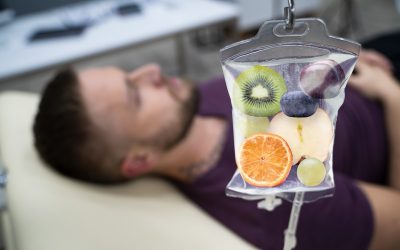When Congress passed the 2018 Farm Bill, which legalized the cultivation, production, and sale of the hemp plant, many people thought inter-state disputes about the legal status of hemp-derived cannabidiol, or CBD, were over. However, people who were trying to ship their CBD-infused goods across state lines, and people who were looking to buy high-quality edible products or the best CBD topical creams, ran into some issues when different state governments tried to criminalize this process.
Even as the FDA moves slowly towards creating a clear and concrete structure of regulations surrounding the production and sale of CBD goods, there’s a lot of confusing information still floating around. A quick Google search will take you to dozens of sites that might give you conflicting answers and leave you more confused than when you started.
However, if you’re trying to easily find the right answers to your CBD interstate commerce questions, and to know what answers just aren’t there yet, this is your guide.
Difficulty for law enforcement
One of the most challenging things about regulating hemp is being able to distinguish it from a cannabis plant with more than 0.3 percent tetrahydrocannabinol, or THC, which is the psychoactive ingredient in cannabis that can cause an intoxicating high and therefore is illegal at the federal level.
Hemp and marijuana plants are almost exactly the same in makeup, except that hemp plants are male and marijuana plants are female. (The cannabis plant is dioecious, which means that seeds and flowers, traditionally male and female features, appear on different plants instead of the same one.)
State authorities and law enforcement officers can have difficulty telling the difference between legal hemp and illegal cannabis, as the two plants may smell and look the same. This difficulty of distinction has led to higher suspicion of people attempting to transport hemp across state lines even after its decriminalization in December of 2018.
These suspicions and inclination towards suspicion remain even though the 2018 Farm Bill explicitly decriminalizes interstate sales of hemp and hemp-derived products.
USDA regulations
One of the aspects of the Farm Bill is a mandate for the Department of Agriculture to create a series of regulations that can oversee state hemp cultivation programs. This will make each state free to adopt the USDA regulations, create its own federally compliant program, or prohibit the cultivation of hemp altogether. This process of crafting the regulations is currently underway, and parts of it have been completed.
It’s important to remember that even if a state bans the cultivation of hemp, you will still be able to buy CBD oil, creams, and edibles in stores or online because the substance has now been decriminalized at the federal level.
Court disputes
There are currently two different hemp-related issues that federal courts are examining. First, there is the question of whether interstate shipping of CBD can occur prior to the USDA’s and the states’ regulations and hemp plans that the Farm Bill authorized. The second is whether the hemp-derived CBD isolate should be treated differently than other hemp-derived products, such as hemp oil for pain relief, where interstate commerce is concerned because the FDA bans this isolate for use in food and supplements.
Idaho and West Virginia’s federal courts are the first to look at these questions, and their rulings have been inconsistent. This is important because these rulings will set a precedent for what is currently legal under the Farm Bill
TSA ruling
The Transportation Security Administration (TSA) recently ruled that products and medications containing lawfully produced CBD are legal to take on flights. However, experts recommend packing your CBD in your checked luggage because hemp derivatives which contain more than 0.3 percent THC look almost identical to CBD and are still illegal, making carry-on luggage checks somewhat risky and more difficult to complete.
Final thoughts
As the FDA and USDA complete their regulations, the CBD market will become a lot clearer and easier to navigate. Users and sellers of CBD are pushing for quick and comprehensive solutions to this regulation limbo problem.










